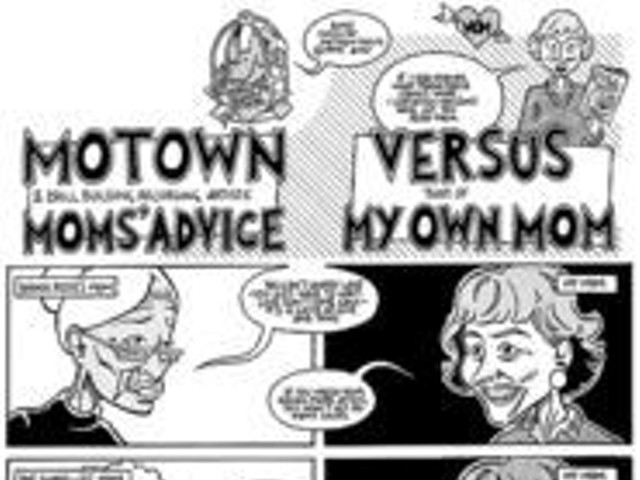It's like a New Yorker watching This Old House. What's the point?
But then you hear a magical recording, something you'd swear must have cost 50 grand to record -- like Rocket Park's Teenage Folklore -- and then note that it was recorded at a place called the Broom Factory, realize that the Broom Factory is a tiny basement studio and ... well ... you just gotta find out about the place.
Mike Martin is the Broom Factory. He constructed his studio in his South City home in much the same way that every other genius sets up a studio. "I moved into this house about seven years ago," he says as he leads us around the place, "and (points to separator wall) I built this wall for a four-track recording studio -- the band I was in was Atomic Fossils at the time -- it was just to make demo tapes for us. Really quickly after that, I got an ADAT and this little board, and an effects unit. From there, I just started collecting gear."
Not much drama involved in the story -- no petty gear larceny, no harrowing fires, no trading-in-equipment-because-of-a-crack-addiction. No real tension, just a constant struggle with leakage problems ("The only drag was, I kind of got rolling down here for the first two years and then I had problems with water leakage. I had to install $4,000 worth of a drainage system around the whole place."), an ever-expanding résumé and the gradual unveiling of a golden sound, one that, honestly, is as good if not better than what's turned out by a number of notable big-time studios that record St. Louis rock bands.
If you've heard recordings by any of these bands, you've heard the sound of the Broom Factory: Tinhorn (Martin plays guitar with them), Hippie Crack Gastank, Johnny Magnet, Pave the Rocket, Ouija, the Highway Matrons, Kamikaze Cowboy, Belle Starr, the Rockhouse Ramblers, Lunker Buzz, Free Dirt. There are many others, but we don't want to list them all.
The Broom Factory is nothing special to the eye. You walk down your standard South City basement stairs onto a concrete floor. Spent drums sit in a corner, along with an old organ and other music equipment. A washer and dryer stand in another corner. The drum room takes up half of the entire space but is apparently well enough insulated to prevent drum leakage. Round a corner, and there's a 16-track soundboard sitting on a desk, with other equipment next to it. Compressors, a digital tape machine (ADAT, the typical basement recorder these days), some effects stuff -- the basics. Peek through a window in front of you, and you see where the drummer would be. Really, there's no room to grow (Martin says, "Trying to get 6 inches down here -- if I get it, it's like gaining a mile"), and far from enough room to record the St. Louis Symphony (so go elsewhere, Vonk). Curtains cover a few shelves of storage. Car seats line the back wall -- one backseat and one front bucket seat. A tiny fridge holds (what else?) the beer.
But from this concrete blah comes magic. Studios 10 times the size churn out muffled drums; the Broom Factory offers precision and tender loving cement. The Factory could fit in the back pocket of one of your $200-an-hour studios, but Martin charges $30 an hour. He offers something more important: enthusiasm. "This is kind of generic, because everybody that I know is like this, but I've just listened to a lot of different kinds of music for a long time, and I've been doing this for a long time, and I love doing it. I've gotten a lot more relaxed at doing it, and, actually, I've really started to have a ball with it. A lot of the bands who I'm working with are doing more production kind of stuff, and that really makes it interesting. Instead of coming in, laying down tracks, mixing -- quick one-day thing and we're out of here -- the punk-rock thing. Not that that's not cool, and I've done my share of it. But it's really cool to have bands down here that sink their teeth in the production -- not overproduced but just cool, creative stuff. Also, some of the bands that come in here -- compared to a bigger studio, they're getting about two hours of studio time for every hour somewhere else, so they're not just rushing in and rushing out and hoping that it sounds OK. Really, that's the key: spending the right amount of time on stuff."
Send local tapes, tips, discs and detritus to "Radar Station," c/o The Riverfront Times, 6358 Delmar Blvd., Suite 200, St. Louis, MO 63130; e-mail: [email protected].





